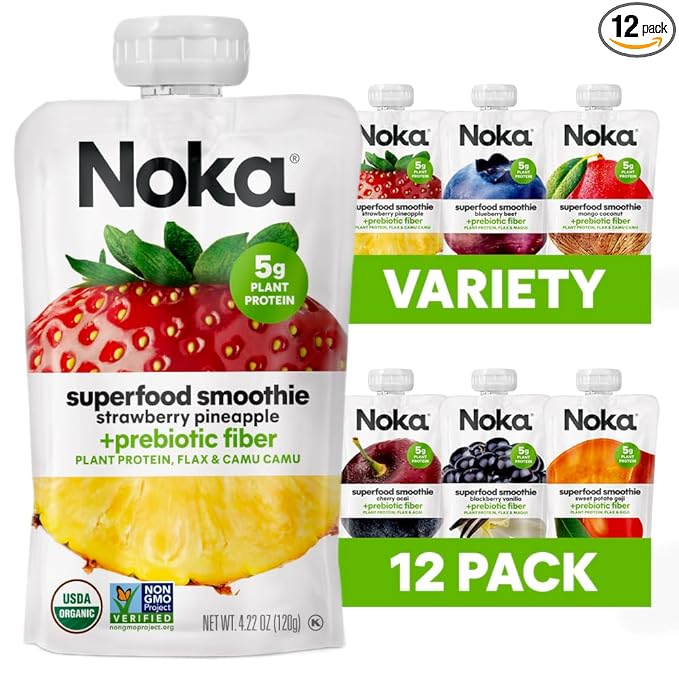Importance of a balanced diet
A balanced diet is crucial for maintaining optimal health and preventing chronic diseases. It includes a variety of nutrient-dense foods that provide the body with the necessary macronutrients (carbohydrates, proteins, and fats) and micronutrients (vitamins and minerals) to function properly. Breakfast, lunch, and dinner are the three main meals of the day that contribute to a balanced diet.
Breakfast kickstarts the metabolism and provides energy for the day ahead. Lunch helps refuel the body and sustain energy levels throughout the day. Dinner provides nutrients that the body needs for repair and recovery during sleep. Therefore, each meal plays a critical role in meeting the body's nutritional requirements and maintaining a balanced diet. In the following sections, we will discuss the components of an ideal balanced diet for breakfast, lunch, and dinner, along with some examples.

Ideal Breakfast
A balanced breakfast should contain a combination of carbohydrates, proteins, fruits and vegetables, and dairy products.
Carbohydrates provide energy and should be derived from whole grains, such as oats or whole-grain bread. Proteins help build and repair body tissues and can be found in eggs or lean meats. Fruits and vegetables are brilliant wellsprings of nutrients, minerals, and fiber. Finally, dairy products provide calcium and other essential nutrients.
Here are a few instances of a reasonable breakfast:
- Oatmeal with fruits and nuts: Cooked oats with almond milk or low-fat milk, topped with fresh fruits like berries or sliced bananas, and a sprinkle of nuts like almonds or walnuts.
- Whole grain bread with eggs and vegetables: Whole-grain toast topped with scrambled eggs and sautéed vegetables like spinach, mushrooms, and tomatoes.
- Smoothie with yogurt and fruits: Blend together low-fat yogurt, mixed berries, banana, and spinach for a delicious and nutritious smoothie.
By combining these food groups in a breakfast meal, you can ensure that your body is receiving the nutrients it needs to start the day off right.

Ideal Lunch
A balanced lunch should include carbohydrates, proteins, fruits and vegetables, and healthy fats.
Carbohydrates should come from whole grains, such as brown rice or quinoa, which provide fiber and slow-digesting energy. Proteins help build and repair body tissues and can come from lean meats, poultry, fish, beans, or legumes. Fruits and vegetables are essential sources of vitamins, minerals, and fiber, while healthy fats, like those found in nuts or avocados, are important for brain function and hormone regulation.
Here are some examples of a balanced lunch:
Grilled chicken with brown rice and vegetables: Grilled chicken breast with a side of brown rice and a mix of steamed or roasted vegetables such as broccoli, carrots, or green beans.
Quinoa salad with beans and avocado: A salad made with cooked quinoa, mixed greens, beans, avocado, and a light dressing. This meal is high in fiber and protein and can be easily packed and taken on the go.
Tuna sandwich with whole grain bread and salad: Whole-grain bread with tuna salad made with light mayo or Greek yogurt, and a side salad of mixed greens, cherry tomatoes, and cucumbers.
By including these components in a lunch meal, you can ensure that your body is receiving the necessary nutrients to maintain energy levels and overall health. By selecting a variety of nutrient-dense foods and opting for whole-grain and fresh produce options, individuals can promote a balanced and fulfilling lunch.

Ideal Dinner
A balanced dinner should include carbohydrates, proteins, fruits and vegetables, and healthy fats.
Carbohydrates should come from whole grains, such as brown rice, sweet potato, or whole-grain pasta, which provide fiber and slow-digesting energy. Proteins should come from lean sources, such as fish, poultry, tofu, or legumes. Fruits and vegetables should be included in abundance and should consist of a variety of colors and types to provide a range of vitamins, minerals, and antioxidants. Healthy fats, such as those found in nuts, seeds, and avocados, are important for overall health and should be included in moderation.
Here are some examples of a balanced dinner:
Grilled salmon with sweet potato and asparagus: Grilled salmon fillet with a side of roasted sweet potato and asparagus spears. This meal is high in protein, healthy fats, and fiber and provides essential nutrients such as omega-3 fatty acids and vitamin C.
Stir-fry vegetables with tofu and brown rice: A stir-fry made with mixed vegetables, tofu, and a light sauce served over brown rice. This meal is high in protein and fiber and provides a range of vitamins and minerals.
Lentil soup with whole-grain bread: A hearty lentil soup made with vegetables and served with a slice of whole-grain bread. This meal is high in protein and fiber and provides essential nutrients such as iron and folate.
By including these components in a dinner meal, individuals can ensure that their body is receiving the necessary nutrients to maintain overall health and well-being. By selecting a variety of nutrient-dense foods and opting for whole-grain and fresh produce options, individuals can promote a balanced and fulfilling dinner.

Recap of the significance of a fair eating regimen In conclusion, a balanced diet is crucial for maintaining optimal health and preventing chronic diseases. A balanced diet includes a variety of foods from all food groups, including carbohydrates, proteins, fruits and vegetables, and healthy fats. Incorporating these components into breakfast, lunch, and dinner meals can help individuals achieve a balanced diet.
It is also important to incorporate variety in meals to ensure that the body is receiving a range of essential nutrients. Choosing nutrient-dense foods and opting for whole-grain and fresh produce options can help to ensure that the body is receiving a balanced and fulfilling meal.
Overall, prioritizing a balanced diet in daily life can help to maintain energy levels, promote a healthy weight, and reduce the risk of chronic diseases. Making small changes to daily eating habits can have a big impact on overall health and well-being. It is important to prioritize a balanced diet and make healthy choices to promote long-term health.






